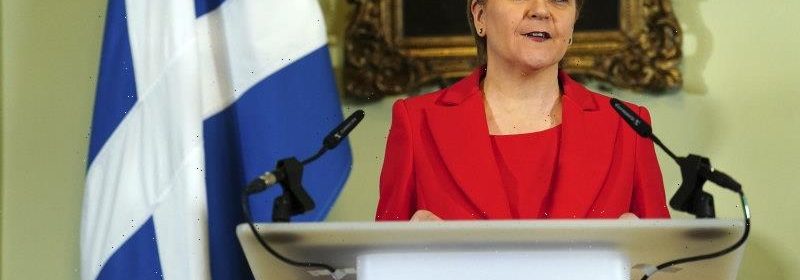‘It is right for me’: Scotland’s First Minister Nicola Sturgeon resigns

London: Nicola Sturgeon, one of the most influential figures in British politics for the past decade, has announced her resignation as Scotland’s first minister after eight years in the role.
Sturgeon said that she had believed since first taking the job that “part of serving well” was to know when the time is right to stand down.
Nicola Sturgeon has resigned as Scotland’s first minister, but will remain in politics.Credit:AP
Sturgeon, 52, became the leader of the ruling SNP in the wake of its 2014 independence referendum when the country voted 55 per cent to 45 per cent to remain as part of the United Kingdom.
“In my head and in my heart I know that time is now, that it is right for me, for my party and for the country. And so today I am announcing my intention to step down as first minister and leader of my party,” she said in an unscheduled press conference at Bute House in Edinburgh.
“I have been first minister for over eight years and I was deputy first minister for the best part of eight years before that. These jobs are a privilege, but they are also rightly hard and especially in the case of first minister, relentlessly so.
“To be clear, I am not expecting violins here. But I am a human being as well as a politician.”
Sturgeon said she had told the SNP to begin the process of electing a new party leader and she will “will remain in office until my successor is elected”.
The independence debated suffered a major blow in November when the United Kingdom’s top court ruled that the Scottish government could not hold a second referendum without approval from the British parliament.
She had said in response that she would turn the next British general election into a de facto referendum to ramp on pressure on Westminster to grant another vote.
There has been increased speculation about her leadership in recent months, with nine members of her party room voting against transgender policies as Scotland passed a bill to make it easier for people to change their legal gender.
The Conservative government of British Prime Minister Rishi Sunak responded by saying that it would block the bill, the first time it had invoked the power to veto a Scottish law because it would have a broader impact on the United Kingdom.
Scotland was then forced to review the management of trans prisoners and stop transgender people with a history of violence against women being placed in female prisons.
Her popularity among Scottish voters has fallen, with a poll this week showing 42 per cent wanted her to stand down immediately.
But Sturgeon said her decision was “not a reaction to short-term pressures”.
“There is a much greater intensity, dare I say brutality, to life as a politician than in years gone by. It takes its toll on you and on those around you.”
Sturgeon said she had found public opinions about her had become “barriers” to debate
She said issues that were controversial “end up almost irrationally so” – though made no specific reference to Scotland’s gender reforms.
She said issues were now seen through the “prism” of what people think about her and called on politicians to “reset the tone and the tenor of our discourse”.
Get a note directly from our foreign correspondents on what’s making headlines around the world. Sign up for the weekly What in the World newsletter here.
Most Viewed in World
From our partners
Source: Read Full Article

